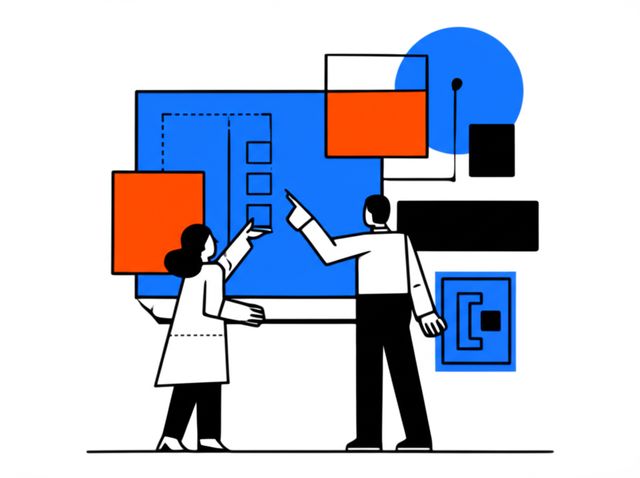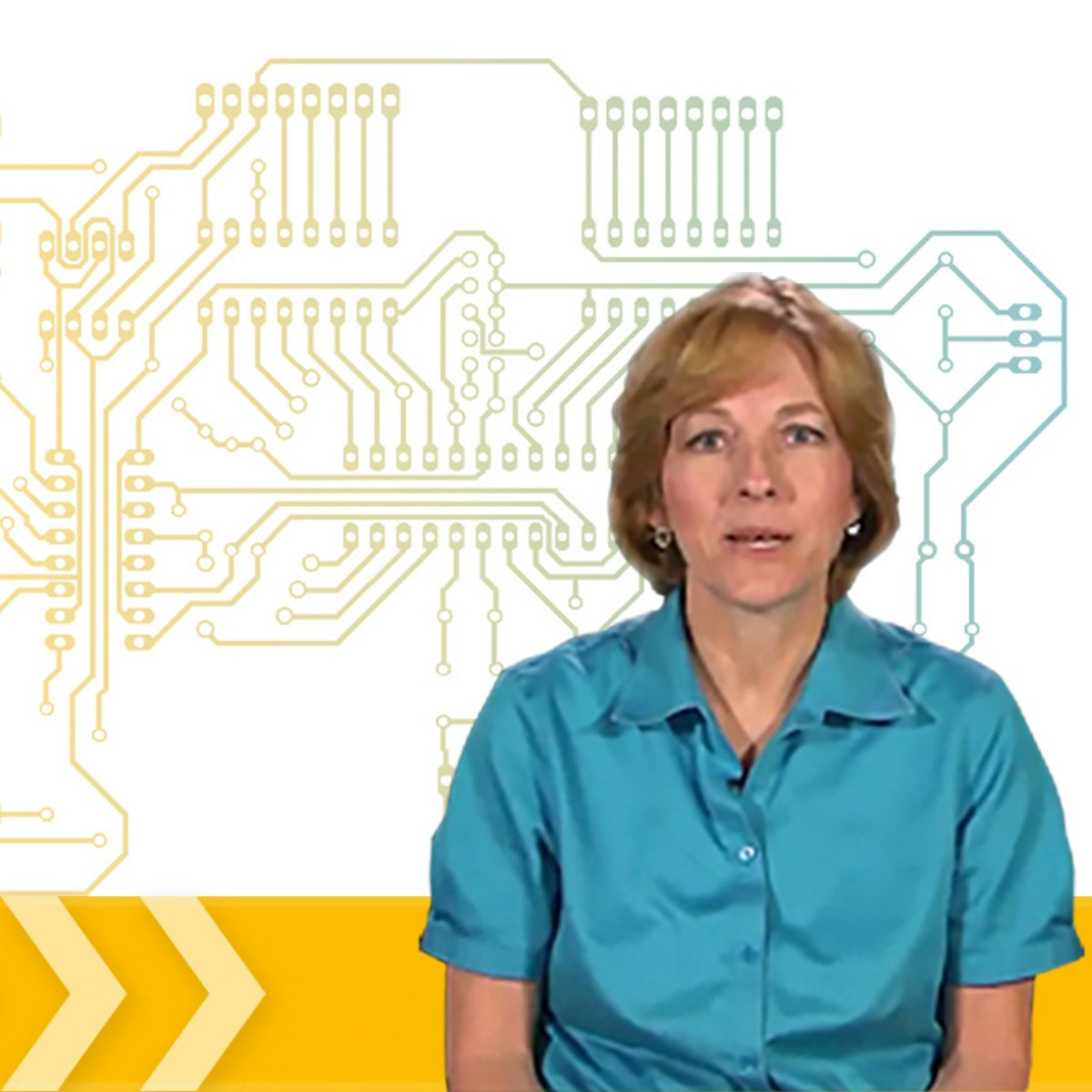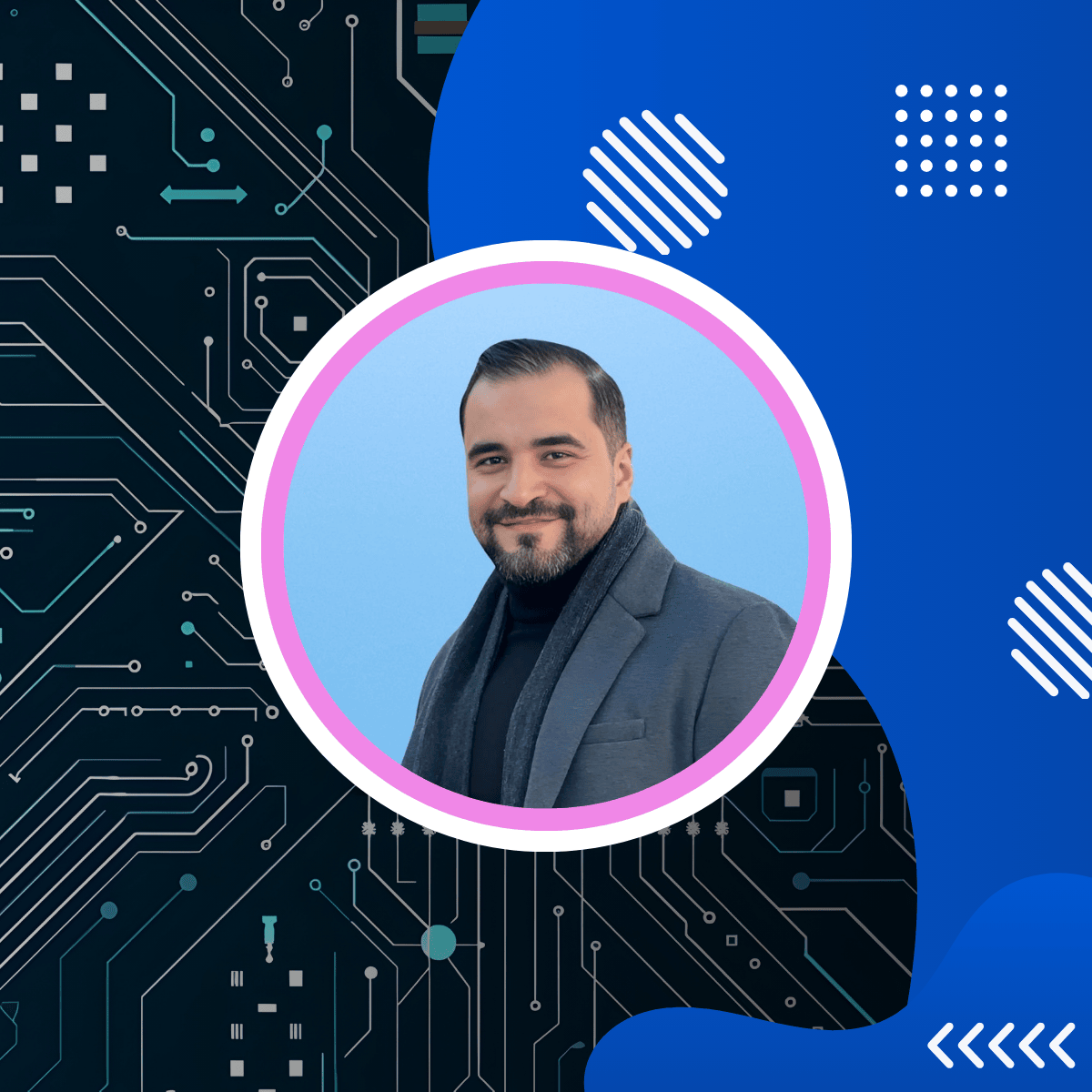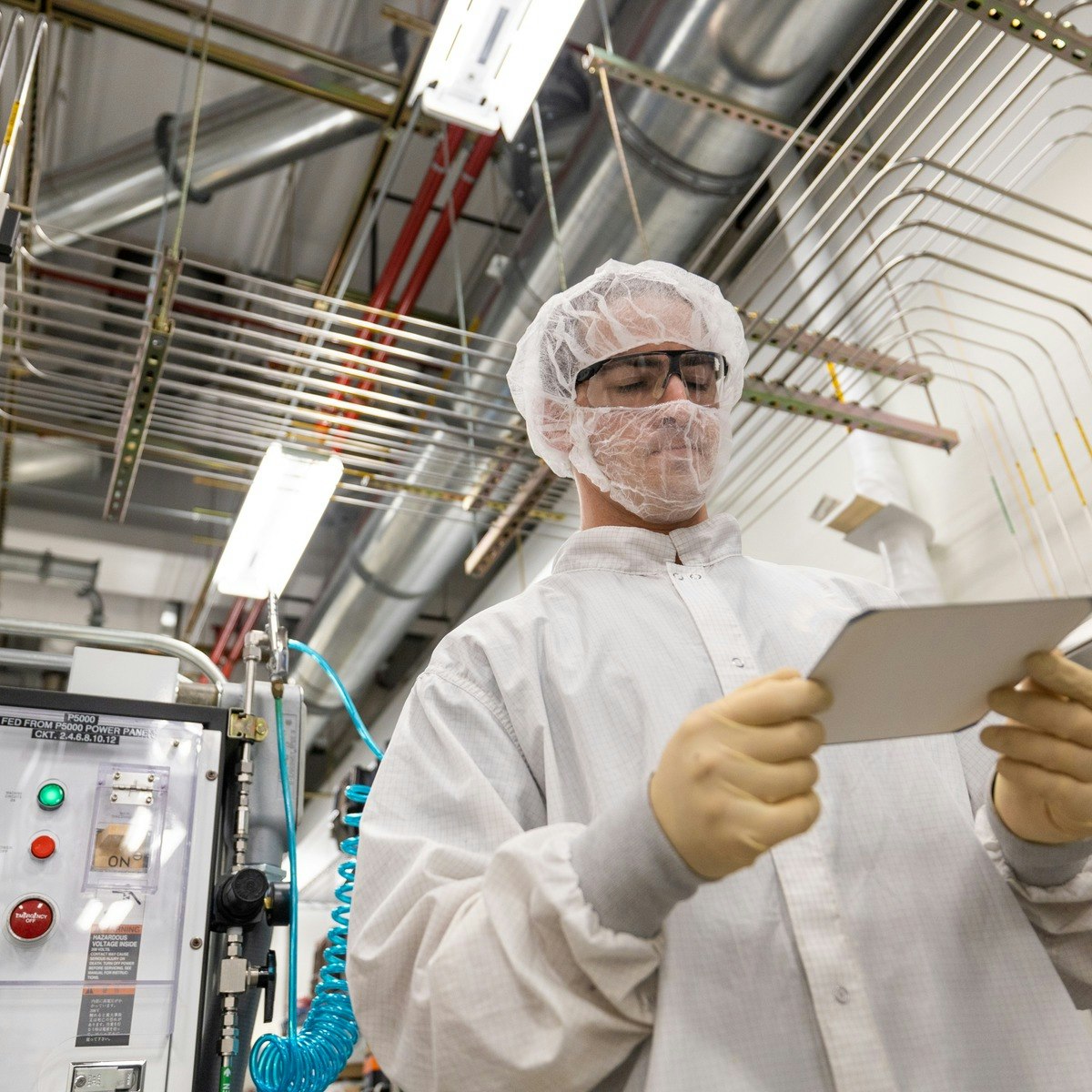Applications Engineer
Applications Engineer: A Career Guide
An Applications Engineer acts as a vital link between a company's technical capabilities and its customers' needs. They specialize in understanding how a company's products—be it software, hardware, or integrated systems—can solve specific customer problems or improve their operations. Essentially, they apply engineering principles to real-world applications, ensuring products work effectively in the customer's environment.
This role often involves a blend of technical expertise, problem-solving, and customer interaction. Imagine someone who not only understands the intricate details of a complex piece of technology but can also explain it clearly, demonstrate its value, and tailor it to fit a specific user's requirements. That's the core of what an Applications Engineer does, making it an engaging field for those who enjoy both technical challenges and working with people.
Overview of Applications Engineering
This section provides a foundational understanding of the Applications Engineer role, exploring its core functions, typical work environments, and how it differs from related technical positions.
What Does an Applications Engineer Do?
At its heart, the Applications Engineer role is about bridging the gap between product development and customer implementation. They possess deep technical knowledge of a product or system and use this expertise to help customers understand, integrate, and utilize it effectively. This often involves understanding customer needs, demonstrating product capabilities, and configuring solutions.
Their responsibilities span a wide range. They might design or modify software or hardware components to meet specific client needs, troubleshoot complex technical issues that arise during implementation or use, and provide ongoing technical support and training. They act as technical consultants, ensuring the product delivers value and solves the customer's specific challenges.
Think of them as technical translators and problem-solvers. They take the complex language of engineering and translate it into practical solutions for customers, ensuring the technology aligns with business goals and operational requirements. This unique blend of technical depth and customer focus defines the core of the role.
Key Industries and Work Environments
Applications Engineers are found across a diverse range of industries where complex technical products require specialized support for customers. The technology sector, including software development, hardware manufacturing, and cloud computing, is a primary employer. Here, they might help clients integrate software solutions, configure hardware systems, or optimize cloud infrastructure.
Manufacturing, particularly in areas like industrial automation, semiconductors, and automotive technology, also relies heavily on Applications Engineers. They might assist clients in implementing robotic systems, integrating specialized electronic components like memory chips (SRAM, DRAM, FLASH), or tailoring sensor technologies for specific manufacturing processes. Other significant sectors include telecommunications, aerospace, energy (especially green energy), and medical devices.
The work environment can vary. Some Applications Engineers are based in an office, collaborating closely with sales and engineering teams. Others spend considerable time traveling to client sites for demonstrations, installations, troubleshooting, and training. The rise of remote work has also opened possibilities for home-based roles, though client-facing responsibilities may still require travel.
Exploring opportunities across different sectors can be beneficial. Platforms like OpenCourser's Technology section or Engineering browse page can help identify relevant skills and knowledge areas for various industries.
How Applications Engineers Differ from Similar Roles
The title "Applications Engineer" can sometimes overlap with other roles, leading to confusion. Understanding the distinctions is helpful. For instance, a Sales Engineer focuses more heavily on the pre-sales process, using technical knowledge primarily to persuade potential customers and close deals. While Applications Engineers often participate in pre-sales activities like demonstrations, their role typically extends deeper into post-sales support, implementation, and customization.
A Software Engineer is primarily focused on designing, developing, testing, and maintaining software systems from the ground up. They write the core code and build the underlying architecture. An Applications Engineer, while often needing strong programming skills, usually specializes in adapting, integrating, and supporting existing software (or hardware) for specific customer uses, rather than building it from scratch.
A Systems Engineer often takes a broader view, focusing on the design, integration, and management of complex systems as a whole, which might include hardware, software, and networks. Applications Engineers tend to have a more product-specific focus, concentrating on how a particular application or product suite fits into the customer's environment. However, strong systems thinking is still valuable for an Applications Engineer.
Finally, a Technical Support Engineer primarily handles troubleshooting and resolving customer issues after a product has been deployed. While Applications Engineers also provide support, their role often involves more proactive engagement, customization, training, and strategic guidance on product usage.
A Day in the Life: Tasks and Projects
The daily routine of an Applications Engineer can be quite varied, depending on the industry, company, and specific projects. A typical day might involve responding to customer technical queries, collaborating with the sales team on a proposal for a new client, or working with the engineering team to relay customer feedback for product improvement.
Common tasks include preparing and delivering technical presentations or product demonstrations, analyzing customer requirements to design tailored solutions, and developing technical documentation like application notes or user guides. Troubleshooting complex integration problems, testing new product features in a simulated customer environment, or providing on-site or remote training sessions are also frequent activities.
Project examples could range from helping a manufacturing client integrate a new sensor system into their production line, customizing a software platform for a financial institution's specific compliance needs, or assisting a research lab in setting up and using complex simulation software. They might also manage pilot programs or proof-of-concept implementations to demonstrate a product's value before a full-scale deployment.
Technical Skills and Tools for Applications Engineers
Success as an Applications Engineer hinges on a robust set of technical skills combined with proficiency in specific tools relevant to their industry and product domain. This section explores the essential technical competencies required.
Core Technical Foundations
A strong foundation in relevant engineering disciplines is crucial. Depending on the specific role, this might include electrical engineering, mechanical engineering, or computer science principles. Understanding core concepts like circuit design, data structures, algorithms, or material properties might be necessary.
Programming and scripting skills are often fundamental. Proficiency in languages like Python, Java, C++, C#, or scripting languages is valuable for tasks ranging from developing custom solutions and automation scripts to analyzing data and integrating systems. Familiarity with software development lifecycles (SDLC) and methodologies like Agile is also beneficial.
Knowledge of hardware is frequently required, especially understanding technical specifications for components like processors, servers, sensors, or embedded systems. This allows Applications Engineers to assess compatibility, performance implications, and potential hardware upgrades needed to support specific applications.
These foundational online courses offer a good starting point for building core technical knowledge relevant to various Applications Engineering fields.
Mastering Industry-Specific Tools
Beyond core skills, Applications Engineers must master tools specific to their domain. In software-focused roles, this could involve integrated development environments (IDEs), version control systems (like Git), database management tools, and cloud platforms such as AWS or Google Cloud.
For hardware or manufacturing roles, proficiency in Computer-Aided Design (CAD) software like SolidWorks, CATIA, or AutoCAD is often essential. Simulation software like Ansys Maxwell, Zemax/OpticStudio for optics, or specialized tools for Radio Frequency (RF) design (like ADS or PathWave SystemVue) are common in relevant fields.
Testing and diagnostics tools are also vital. This might include oscilloscopes and logic analyzers for hardware debugging, software testing frameworks, network analyzers, or specialized equipment for validating product performance (e.g., load testing tools, signal generators).
These courses provide hands-on experience with specific tools used by Applications Engineers in various specializations.
System Integration and Troubleshooting Expertise
A key responsibility for Applications Engineers is ensuring their company's products integrate seamlessly into the customer's existing systems and workflows. This requires strong system integration skills – the ability to understand how different software and hardware components interact, identify potential compatibility issues, and design solutions that bridge gaps.
Troubleshooting is arguably one of the most critical skills. When things go wrong, the Applications Engineer is often the go-to expert. They need methodical problem-solving abilities, leveraging diagnostic tools and deep product knowledge to identify root causes of issues, whether they lie in software bugs, hardware malfunctions, configuration errors, or network problems.
This involves not just fixing the immediate problem but also understanding the underlying cause to prevent recurrence. Strong analytical skills, patience, and the ability to think logically under pressure are essential for effective troubleshooting.
These courses delve into systems thinking, integration challenges, and troubleshooting methodologies pertinent to the role.
Keeping Pace with Emerging Technologies
The technology landscape is constantly evolving, and Applications Engineers must stay current. Emerging technologies like the Internet of Things (IoT), Artificial Intelligence (AI) and Machine Learning (ML), cloud computing, and advanced automation are impacting how products are designed, deployed, and supported.
Understanding how IoT enables device connectivity and data collection can be crucial in industries like manufacturing or smart homes. Familiarity with AI/ML concepts might be needed to support intelligent applications or leverage AI for predictive maintenance or performance optimization. As more applications move to the cloud, expertise in cloud platforms and microservices architecture becomes increasingly valuable.
Continuous learning is non-negotiable. Engaging with industry publications, attending conferences, and taking courses on new technologies are vital for staying relevant and effective in the role. This adaptability ensures they can support the next generation of products and customer needs.
These courses cover emerging areas like IoT and embedded systems, which are increasingly relevant for Applications Engineers.
Formal Education Pathways
While practical skills and experience are paramount, a formal education often provides the necessary theoretical foundation and structured learning environment for aspiring Applications Engineers. This section outlines common educational routes.
Relevant Undergraduate Degrees
A bachelor's degree in an engineering field is the most common starting point. Electrical Engineering (EE) and Mechanical Engineering (ME) degrees provide strong fundamentals in hardware, systems, and physical principles, often relevant for roles in manufacturing, semiconductors, automotive, or hardware-centric tech.
A Computer Science (CS) degree is highly relevant, especially for software-focused Applications Engineering roles. It equips graduates with programming expertise, understanding of algorithms, data structures, operating systems, and software development methodologies.
Other related degrees can also serve as a good foundation, such as Computer Engineering (which blends EE and CS), Physics, or even Mathematics, particularly if complemented with relevant technical electives or internships. The specific degree often matters less than the acquired skills and ability to apply engineering principles to solve problems.
These courses align with typical undergraduate engineering and computer science curricula, covering fundamental concepts.
Graduate Programs and Specialized Certifications
While not always required, a master's degree can provide deeper specialization or help transition into the field from a different undergraduate background. A Master of Science (MS) in Electrical Engineering, Computer Science, or a specialized field like Embedded Systems, Robotics, or Power Electronics can enhance expertise.
Professional certifications can also add significant value, demonstrating proficiency in specific technologies or platforms. Examples include certifications from cloud providers (AWS Certified Solutions Architect, Google Cloud Certified), networking certifications (Cisco CCNA/CCNP), or vendor-specific certifications related to CAD software, simulation tools, or enterprise software platforms.
Certifications often signal practical, up-to-date skills valued by employers. The choice between pursuing a graduate degree versus certifications depends on career goals, desired specialization, and industry requirements. Some roles, particularly those involving cutting-edge research or highly specialized fields, may favor advanced degrees.
These courses cover specialized topics often explored in graduate studies or certification paths.
Understanding the principles behind sensors and their interfaces is crucial in many Applications Engineering roles, especially in manufacturing, IoT, and instrumentation.
PhD Pathways for Research-Oriented Roles
For those interested in pushing the boundaries of technology or working in research and development (R&D) environments, a Doctor of Philosophy (PhD) might be beneficial. A PhD equips individuals with deep research skills, advanced theoretical knowledge, and the ability to lead innovation in a specific domain.
Applications Engineers with PhDs often work in roles involving the development of novel products, contributing to fundamental research that underpins future applications, or solving highly complex, unique customer challenges that require cutting-edge expertise. They might work for large tech companies, research institutions, or specialized R&D firms.
Pursuing a PhD is a significant commitment and is typically suited for those passionate about research and contributing to the forefront of their field. It's less common for typical customer-facing Applications Engineering roles but can open doors to highly specialized or research-focused positions within the broader field.
Key Coursework and Foundational Concepts
Regardless of the specific degree, certain foundational coursework is highly valuable. Courses in physics, calculus, and differential equations provide essential mathematical and scientific underpinnings. Core engineering courses like circuits, digital logic design, thermodynamics, mechanics, and materials science are often relevant.
For software-oriented roles, courses in data structures, algorithms, operating systems, computer networks, database systems, and software engineering principles are fundamental. Courses covering specific programming languages are also key. For hardware roles, courses in electronics, semiconductor physics, signal processing, control systems, and electromagnetics are important.
Beyond technical subjects, courses developing communication skills (technical writing, presentations) and project management abilities are extremely beneficial, given the collaborative and customer-facing nature of the Applications Engineer role.
These courses cover foundational topics often encountered in engineering programs.
Online Learning and Skill Development
Formal education isn't the only path to becoming an Applications Engineer. Online learning offers flexible and accessible ways to acquire necessary skills, supplement existing knowledge, or facilitate a career transition. This section explores how online resources can be leveraged effectively.
Can You Become an Applications Engineer Through Online Learning?
Transitioning into an Applications Engineer role solely through online learning is challenging but potentially feasible, especially if combined with prior relevant experience or a strong aptitude for technology. Online courses can provide the necessary theoretical knowledge and technical skills in programming, specific software tools, hardware concepts, and industry domains.
The key challenge lies in gaining practical, hands-on experience and demonstrating capabilities to potential employers. Simply completing courses may not be enough. Aspiring engineers need to actively apply their learning through personal projects, contributing to open-source projects, or seeking internships or entry-level roles that allow them to build real-world experience.
For those already in technical roles (like technical support or testing), online learning can be a powerful tool to bridge skill gaps and move into an Applications Engineering position. It allows professionals to learn specific technologies or deepen their understanding of engineering principles relevant to their target roles while continuing to work.
Embarking on this path requires significant self-discipline, motivation, and a proactive approach to building practical skills and a portfolio. It's a journey that demands dedication, but online resources make it more accessible than ever before.
Balancing Theory with Hands-On Projects
Effective online learning for a practical field like Applications Engineering requires a balance between understanding theoretical concepts and applying them through hands-on work. Theoretical knowledge provides the "why" behind the technology, while practical projects build the "how" – the actual skills needed on the job.
Look for online courses that incorporate labs, projects, or case studies. Platforms like OpenCourser aggregate courses from various providers, many of which emphasize project-based learning. Supplement theoretical courses with dedicated project courses or tutorials that guide you through building something tangible.
Consider setting up a home lab environment if hardware is involved (e.g., using development boards like Raspberry Pi or Arduino for embedded systems practice). For software roles, contribute to open-source projects or develop your own applications to showcase your skills. Documenting these projects thoroughly in a portfolio is crucial for demonstrating your capabilities.
These courses focus on hands-on application and project work, helping bridge the gap between theory and practice.
Supplementing Formal Education with Online Courses
Online learning is not just for those without formal degrees; it's an invaluable resource for students and graduates as well. University curricula may not cover the latest specific tools or niche technologies used in industry. Online courses can fill these gaps, providing practical skills in specific software (e.g., CAD, simulation tools), programming languages, or cloud platforms.
Students can use online courses to deepen their understanding of complex topics covered in their university classes, explore specializations not offered at their institution, or prepare for industry certifications alongside their degree program. This proactive approach can make graduates more competitive in the job market.
For working professionals, online courses offer a flexible way to engage in continuous learning, stay updated on technological advancements, acquire new skills for career advancement, or pivot to a different specialization within Applications Engineering. OpenCourser's Learner's Guide offers tips on integrating online learning effectively into academic or professional development plans.
These courses cover specific technologies and tools that might supplement a traditional engineering or CS education.
Building a Portfolio Through Independent Projects
For anyone pursuing an Applications Engineering career, especially those relying heavily on online learning or making a career pivot, a strong portfolio is essential. A portfolio provides tangible evidence of your skills and ability to apply knowledge to solve real problems, going beyond resumes and course certificates.
Your portfolio should showcase projects relevant to the type of Applications Engineering roles you're targeting. This could include custom software applications you've developed, hardware projects you've built and documented (e.g., using microcontrollers), complex simulations you've run, or detailed technical analyses you've performed.
Clearly document each project: describe the problem you aimed to solve, the technologies and tools you used, your design process, the challenges you encountered, and the final outcome. Include code repositories (like GitHub), schematics, simulation results, and possibly video demonstrations. A well-curated portfolio is a powerful tool in job applications and interviews.
Consider projects that integrate multiple skills, mimicking the cross-functional nature of the role. For example, build an IoT device that collects sensor data (hardware/embedded), sends it to a cloud platform (networking/cloud), and displays it on a web dashboard (software/web development).
These courses offer opportunities to build projects suitable for a portfolio, covering areas like embedded systems and app development.
Career Progression for Applications Engineers
An Applications Engineer role often serves as a gateway to various technical and customer-facing career paths. Understanding the potential progression can help in planning long-term career goals.
Entry-Level Roles and Starting Points
Recent graduates or those transitioning into the field often start in roles like Junior Applications Engineer, Technical Support Engineer, or Field Service Engineer. These positions provide opportunities to learn the company's products deeply, interact with customers, and develop essential troubleshooting and technical skills.
In some cases, individuals might start in related technical roles like software testing (Quality Assurance Analyst) or hardware technician (Electronics Technician) and then move into an Applications Engineering role after gaining product expertise and demonstrating strong problem-solving and communication skills.
Entry-level roles typically involve supporting senior engineers, handling less complex customer issues, assisting with demonstrations or testing, and learning the ropes of the products and customer interactions under supervision.
These courses can help build foundational skills relevant for entry-level technical support or junior engineering roles.
Mid-Career Advancement and Specialization
With experience, Applications Engineers typically advance to Senior Applications Engineer roles. Senior engineers handle more complex customer challenges, lead implementations, mentor junior team members, and may specialize in particular products, technologies, or industries.
Further progression can lead to roles like Principal Applications Engineer or Applications Engineering Team Lead/Manager, involving technical leadership, strategic input on product support, managing a team of engineers, and potentially overseeing key customer accounts.
Specialization is common at this stage. An engineer might become the go-to expert for a specific high-demand product line, a particular industry (e.g., automotive, healthcare), or a cutting-edge technology (e.g., AI integration, RF systems). This deep expertise increases their value and can lead to higher compensation.
Continuous learning and potentially advanced certifications or degrees often support mid-career advancement, demonstrating ongoing commitment and expanded capabilities.
These advanced courses cover specialized areas like RF engineering, embedded systems, and semiconductor packaging, relevant for mid-career specialization.
Pivoting to Adjacent Roles
The unique blend of technical expertise and customer interaction in Applications Engineering opens doors to various adjacent roles. Many leverage their deep product and customer understanding to move into Product Management, where they define product strategy and roadmaps.
Others transition into Solutions Architecture, designing high-level technical solutions that integrate multiple products or services to meet complex business needs. The strong technical and communication skills also make roles like Project Engineer or Technical Program Manager viable paths, focusing on overseeing the execution of technical projects.
Some Applications Engineers gravitate towards more commercial roles, becoming Sales Engineers or moving into Technical Marketing or Business Development, leveraging their ability to communicate technical value effectively. The skills gained are highly transferable across many functions within a technology company.
Impact of Certifications and Continuing Education
Certifications and ongoing learning play a significant role throughout an Applications Engineer's career. Early on, foundational certifications can help secure entry-level positions. As engineers progress, advanced or specialized certifications demonstrate expertise in key technologies (e.g., cloud platforms, specific software suites, networking protocols) and can be crucial for promotions or moving into specialized roles.
Continuing education, whether through formal degree programs, online courses, workshops, or industry conferences, is essential for staying current in a rapidly evolving field. It allows engineers to learn about new products, tools, and methodologies, ensuring they remain effective and valuable assets to their employers and clients.
Employers often value demonstrated commitment to learning and skill development. Highlighting relevant certifications and recent coursework on resumes and professional profiles (like LinkedIn) can significantly enhance career prospects.
These courses cover advanced topics and specific technologies often targeted by experienced engineers for continuing education or certification preparation.
Applications Engineer in the Global Market
The demand for Applications Engineers is not confined to one region; it's a global role influenced by international markets, technology trends, and varying regional requirements.
Geographic Demand Hotspots
Demand for Applications Engineers is strong in major technology hubs worldwide. North America, particularly the United States (Silicon Valley, Seattle, Austin, Boston) and Canada (Toronto, Vancouver), remains a key region due to the concentration of tech companies, semiconductor manufacturers, and research institutions.
Europe also shows significant demand, especially in countries with strong technology and manufacturing sectors like Germany, the UK, France, and the Netherlands. The focus might vary, with Germany strong in automotive and industrial automation, while other regions might focus more on software or telecommunications.
The Asia-Pacific region is another major hotspot, driven by technology manufacturing, consumer electronics, and burgeoning software industries in countries like China, Japan, South Korea, Taiwan, and India. Specific needs might relate to semiconductor manufacturing support, consumer electronics applications, or software services for large domestic markets.
Impact of Outsourcing and Remote Work Trends
The rise of remote work has significantly impacted the Applications Engineer role. Many companies now hire Applications Engineers remotely, broadening the talent pool beyond specific geographic locations. This offers flexibility for engineers but also increases global competition for roles. According to Hired's 2023 study, nearly 40% of software engineers prefer only remote roles, a trend likely mirrored in Applications Engineering.
While fully remote roles exist, the client-facing nature means hybrid models or roles requiring travel are still common. Companies may strategically hire engineers in regions close to major customer bases to facilitate easier on-site support when needed. The ability to work effectively in a remote or hybrid setting, utilizing collaboration tools and maintaining strong communication, is increasingly important.
Outsourcing trends can also influence the market, with some companies utilizing third-party service providers or establishing support centers in lower-cost regions. However, the need for engineers with deep product knowledge and direct customer interaction often keeps core Applications Engineering roles closer to R&D or key markets.
The ability to work remotely opens up possibilities but requires discipline. Many engineers report increased productivity working remotely, but maintaining work-life balance is crucial.
Regional Certification and Licensing Requirements
Unlike some traditional engineering disciplines (like Civil or Professional Engineering) that often require country or state-specific licenses (e.g., P.Eng. in Canada, PE in the US), Applications Engineering typically does not have mandatory licensing requirements tied to geography.
However, industry-specific or technology-specific certifications may hold different weight or recognition in various regions. Certain safety, compliance, or quality standards might be more prevalent in specific markets (e.g., ISO standards in Europe, specific regulations in healthcare or finance), and familiarity with these can be advantageous.
Employers in specific regions might prefer candidates with certifications recognized locally or globally relevant certifications from major technology vendors (Microsoft, AWS, Cisco, etc.). Researching common certifications valued in the target region or industry can be beneficial for international job seekers.
The Value of Cultural Adaptability and Language Skills
Given the global nature of technology and business, cultural adaptability and language skills are significant assets for Applications Engineers, especially those working for multinational corporations or supporting international clients.
Understanding different business cultures, communication styles, and customer expectations across regions can greatly enhance effectiveness in building rapport and providing support. Being sensitive to cultural nuances helps in navigating client interactions smoothly.
Proficiency in languages beyond English is highly valuable, particularly in regions where English is not the primary business language. Languages like Mandarin, Japanese, German, French, or Spanish can open doors to opportunities supporting clients in major global markets and facilitate clearer communication, reducing misunderstandings.
Even without fluency, demonstrating cultural awareness and a willingness to adapt communication styles can make a significant difference in building strong international client relationships.
For those interested in specific regions, exploring language courses relevant to major tech or manufacturing hubs can be a strategic move. OpenCourser offers resources for language learning through its Languages browse category.
Ethical and Operational Challenges
The Applications Engineer role, while rewarding, is not without its challenges. Navigating technical limitations, customer expectations, and internal dynamics requires careful balancing and ethical considerations.
Balancing Client Demands with Technical Feasibility
A common challenge is managing customer expectations. Clients may request features or customizations that are technically complex, costly, time-consuming, or even impossible within the product's architecture. The Applications Engineer must skillfully navigate these situations.
This involves clearly communicating technical limitations without sounding dismissive, exploring alternative solutions that meet the client's underlying need, and sometimes pushing back respectfully when a request is truly unfeasible or detrimental to the system's stability or performance.
It requires a combination of technical depth to accurately assess feasibility, strong communication skills to explain complex issues simply, and negotiation skills to find mutually agreeable solutions. Balancing advocacy for the customer with adherence to technical realities is a constant tightrope walk.
Data Privacy and Security Considerations
Applications Engineers often work with customer systems and data during implementation, troubleshooting, or customization. This necessitates a strong awareness of data privacy and security best practices and regulations (like GDPR or CCPA).
They must handle sensitive customer information responsibly, ensure that solutions they design or implement comply with security policies, and avoid introducing vulnerabilities. This might involve configuring security settings correctly, advising clients on secure usage patterns, or ensuring data handling meets compliance requirements.
In industries like healthcare or finance, where data sensitivity is paramount, the responsibility is even greater. Understanding security principles and adhering strictly to protocols is critical to maintaining customer trust and avoiding potentially severe consequences of data breaches or non-compliance.
Sustainability in Product Design and Application
As environmental concerns grow, sustainability is becoming an increasingly important consideration in engineering. While not always a primary focus, Applications Engineers may encounter situations where sustainability factors into product recommendations or implementation choices.
This could involve advising clients on energy-efficient hardware configurations, helping optimize software applications to reduce computational resource consumption (and thus energy use), or understanding the environmental impact of materials used in hardware products.
In industries directly related to environmental monitoring or green energy, sustainability is a core aspect of the role. Even in other sectors, having an awareness of sustainable engineering principles can be a valuable perspective, aligning technical solutions with broader corporate social responsibility goals.
Managing Cross-Functional Team Dynamics
Applications Engineers operate at the intersection of multiple teams: sales, product development/engineering, technical support, and the customer. Navigating the potentially conflicting priorities and communication styles of these different groups can be challenging.
They might need to advocate for a customer's feature request to an engineering team focused on a different roadmap, explain technical limitations to a sales team eager to close a deal, or coordinate troubleshooting efforts between support and development.
Effective collaboration, clear communication, and diplomacy are essential. Building strong relationships across different departments helps in resolving conflicts, ensuring smooth project execution, and ultimately delivering better outcomes for the customer.
Applications Engineer vs. AI Automation
The rapid advancement of Artificial Intelligence (AI) raises questions about its potential impact on various professions, including Applications Engineering. Understanding how AI might change the role is crucial for future-proofing a career.
Tasks Vulnerable to Automation
Certain aspects of the Applications Engineer role are more susceptible to automation than others. Routine troubleshooting of common issues, analysis of large datasets for performance monitoring, basic code generation or scripting, and preliminary requirements gathering based on standardized inputs could potentially be handled or augmented by AI tools.
AI excels at pattern recognition and processing large volumes of information, making it suitable for tasks like analyzing system logs to predict failures (predictive maintenance) or automatically generating documentation based on code or system configurations. According to research by Amtec, AI can automate routine tasks, allowing engineers to focus elsewhere.
Tasks involving repetitive diagnostics, data analysis, or standard configurations are likely areas where AI will increasingly provide assistance or take over aspects of the workflow.
Human-Centric Skills Resistant to Automation
Despite AI's capabilities, many core aspects of the Applications Engineer role rely heavily on human skills that are difficult to automate. Complex, novel problem-solving requiring creativity and intuition remains a human domain. Building rapport and trust with clients, understanding nuanced business needs through empathetic communication, and negotiating solutions involve inherently human interaction.
Strategic thinking, such as advising clients on the best long-term technology roadmap or adapting solutions to unique, unforeseen circumstances, requires judgment and contextual understanding beyond current AI capabilities. Handling ambiguity, managing stakeholder relationships, and providing mentorship or leadership are also human-centric skills.
The ability to translate complex technical concepts into understandable terms for non-technical audiences, persuade stakeholders, and navigate complex interpersonal dynamics are critical skills that AI currently cannot replicate effectively.
Adapting to AI-Augmented Workflows
The future likely involves Applications Engineers working alongside AI tools, leveraging them to enhance productivity and focus on higher-value tasks. Instead of replacement, AI may lead to augmentation. Engineers might use AI for faster diagnostics, automated report generation, or predictive insights, freeing up time for strategic consultation and complex problem-solving.
Adapting requires learning how to effectively use AI tools relevant to the field, understanding their capabilities and limitations, and developing skills that complement AI, such as critical thinking, complex communication, and strategic decision-making. According to a ByteSnap Design industry report, 65% of UK engineering professionals indicated AI had already transformed how they work, often by automating tedious tasks.
The role may evolve to focus more on overseeing AI-driven processes, validating AI recommendations, handling exceptions, and managing the human aspects of client interaction and strategic guidance.
Future-Proofing Career Strategies
To thrive in an AI-influenced future, Applications Engineers should focus on developing skills that are less susceptible to automation. This includes deepening technical expertise in complex, emerging areas, honing problem-solving skills for novel challenges, and strengthening interpersonal and communication abilities.
Cultivating strong business acumen and understanding customer industries deeply adds strategic value that AI cannot easily replicate. Specializing in niche areas or focusing on roles requiring significant client relationship management can also provide greater job security.
Continuous learning is paramount. Staying updated not only on core technologies but also on AI advancements and how they can be leveraged is crucial. Embracing AI as a tool rather than viewing it as a threat, and proactively developing complementary skills, is the most effective strategy for future-proofing a career in Applications Engineering. While some tasks may be automated, the World Economic Forum's Future of Jobs Report 2020 estimated that AI and automation would create more jobs (97 million) than they displace (85 million) by 2025, suggesting evolution rather than extinction.
Frequently Asked Questions (Career Focus)
This section addresses common practical questions individuals might have when considering a career as an Applications Engineer.
What is the average salary range for Applications Engineers?
Salaries for Applications Engineers vary based on experience, location, industry, company size, and specific skills. According to data from ZipRecruiter as of April 2025, the average annual pay in the United States is approximately $110,698. The typical range falls between $84,000 (25th percentile) and $135,000 (75th percentile).
Other sources report slightly different figures. Built In suggests an average base salary of around $121,988, with total compensation (including bonuses) reaching $148,160. Talent.com lists a US average of $111,899, with entry-level positions starting around $85,408 and experienced workers earning up to $159,842. Salary.com reports a lower average of $83,262, with a range typically between $74,643 and $92,732. Geographic location significantly impacts salary, with major tech hubs often offering higher compensation.
Senior Applications Engineers or those in specialized, high-demand fields (like RF or specific software niches) can earn significantly more, sometimes exceeding $150,000 or even $190,000 in top roles like Application Operations Engineer or Application Systems Architect, according to ZipRecruiter's analysis of high-paying related jobs.
Can mechanical engineers transition into software-focused Applications Engineering?
Yes, a transition from mechanical engineering (ME) to a software-focused Applications Engineering role is possible, but it requires acquiring relevant software skills. MEs possess strong problem-solving abilities and a solid engineering foundation, which are valuable assets.
To make the transition, an ME would typically need to develop proficiency in programming languages (like Python, C++, Java), understand software development principles, databases, operating systems, and potentially cloud technologies. Online courses, bootcamps, or even a master's degree in Computer Science or Software Engineering can help bridge the gap.
Highlighting transferable skills like systems thinking, troubleshooting, project management, and any prior experience with simulation software or data analysis can strengthen their profile. Networking with software professionals and working on personal software projects for a portfolio are also crucial steps.
This course focuses on Python specifically for Mechanical Engineers, which could be a good starting point for such a transition.
Which industries hire the most Applications Engineers?
Applications Engineers are in demand across numerous sectors. The Technology industry (including software, hardware, semiconductors, cloud computing) is a major employer. Manufacturing (especially industrial automation, automotive, aerospace, electronics) relies heavily on them.
Other key industries include Telecommunications, Energy (particularly renewable/green energy), Healthcare (medical devices, health IT), and Financial Services (fintech, banking systems). Essentially, any industry that produces or heavily utilizes complex technical products often requires Applications Engineers to support customer implementation and use.
According to expert insights compiled by Terratendo, sectors like energy, electronics, biomedical, tech (AI/ML), telecommunications, automotive, construction, and transportation are expected to have strong hiring for engineering roles in 2025.
Are certifications more valuable than degrees in this field?
Both degrees and certifications hold value, but their importance can depend on the specific role, industry, and career stage. A relevant bachelor's degree (e.g., in Engineering or Computer Science) often serves as the foundational requirement, providing essential theoretical knowledge and structured problem-solving skills.
Certifications demonstrate practical, up-to-date proficiency in specific tools, technologies, or platforms (e.g., AWS, specific CAD software, networking protocols). They can be particularly valuable for showcasing specialized skills, for career changers demonstrating acquired knowledge, or for experienced engineers looking to validate expertise in new areas.
In many cases, employers look for a combination: a relevant degree provides the base, while certifications add specific, practical skill validation. For entry-level roles, a degree might be more critical. For mid-career advancement or specialization, targeted certifications can significantly boost a profile. Ultimately, demonstrated ability and hands-on experience often weigh most heavily.
How critical are soft skills compared to technical skills?
Soft skills are extremely critical for Applications Engineers, often just as important as technical skills. Because the role involves significant interaction with customers, sales teams, and internal engineering groups, strong communication (both written and verbal) is essential. This includes the ability to explain complex technical concepts clearly to different audiences.
Other vital soft skills include problem-solving, critical thinking, active listening (to understand customer needs accurately), teamwork and collaboration, patience, and adaptability. Customer service orientation and the ability to build rapport and trust are paramount for success in client-facing interactions.
While deep technical knowledge forms the foundation, it's the soft skills that enable Applications Engineers to effectively apply that knowledge in real-world scenarios, manage relationships, and translate technical capabilities into customer value.
Is remote work common for Applications Engineers?
Remote work has become increasingly common for Applications Engineers, mirroring trends across the broader tech and engineering sectors. Many companies offer fully remote or hybrid work arrangements, leveraging digital collaboration tools. Research suggests a strong preference for remote work among engineers, with many seeking employers who offer flexibility.
However, the feasibility of fully remote work can depend on the specific role and industry. Positions requiring frequent hands-on hardware interaction, on-site installations, or in-person client demonstrations may necessitate more time in an office or traveling to client locations.
Even in remote roles, some travel might be required for critical client meetings, training sessions, or troubleshooting complex issues. Overall, while remote opportunities have expanded significantly, the need for some level of physical presence, depending on the job's specifics, remains a factor in this field.
Becoming an Applications Engineer offers a dynamic career path at the intersection of technology and customer interaction. It requires a unique blend of deep technical understanding, strong problem-solving abilities, and excellent communication skills. Whether you come from a traditional engineering or computer science background or are transitioning via online learning and practical experience, the field provides diverse opportunities across numerous industries. Success hinges on continuous learning, adaptability, and the ability to bridge the gap between complex products and real-world applications, ultimately helping customers achieve their goals.







































